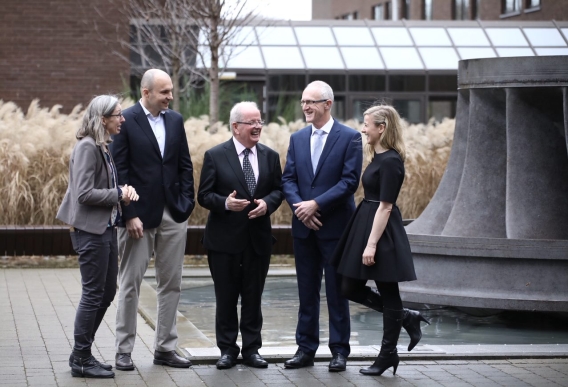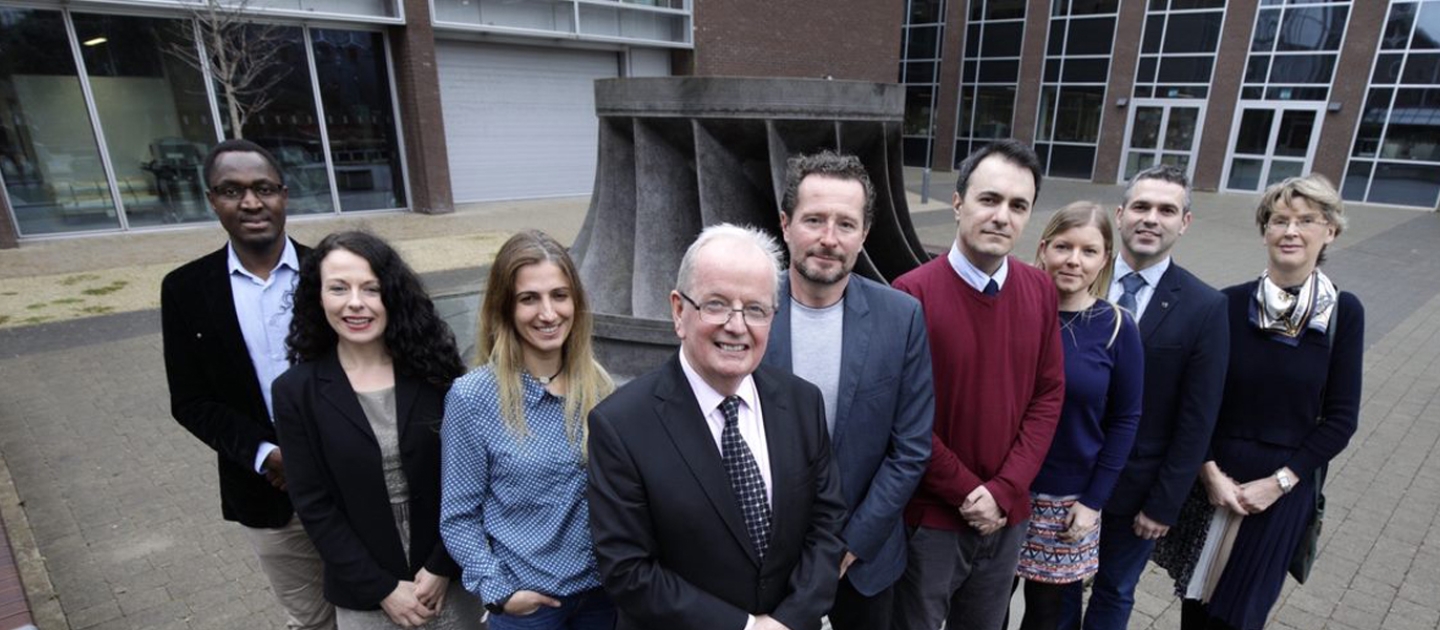In 2019, University of Limerick became the second best performing university in Ireland for Marie Curie Individual Fellowship awards and the best performing Irish university for COFUND awards.
At a recent event, UL President Dr Des Fitzgerald launched MarieCurie @ UL where the achievements of four Individual Fellowship recipients and two UL faculty coordinators of Initial Training (PhD) Networks were recognized.
Dr Mehakpreet Singh is Ireland’s first ever perfect scoring Marie Curie fellow who achieved 100/100 for his research proposal with Prof Gavin Walker. He is one of only nine in Europe to have done so in 2019.
Dr Ibrahim Saana Aminu, gained his PhD in 2017 from Wuhan University of Technology, China. At the time of application he had authored 46 peer-reviewed scientific publications in high impact journals in just five years (H-index: 17). Ibrahim is the University’s Marie Curie Ambassador for 2020.
Dr Arash Kia obtained his PhD in 2018 from the University of Tehran specializing in artificial intelligence models to estimate financial risk in global capital markets. Arash is working with Dr Finbarr Murphy in the Emerging Risk Group based in the KBS and is using the same AI models to examine the liability of cyber risks, particularly for autonomous vehicles.
Sombel Diaham is based between Analogue Devices and Professor Ursel Baungert’s lab at UL.
UL was the first Irish university to hold a Marie Curie Masterclass with 13 travel bursaries awarded to international applicants across all disciplines.
In Horizon 2020, UL has been awarded funding for 79 Marie Curie researchers: 62 postdocs and 17 PhD students all currently or soon to be based at UL.

The UL chapter of the Marie Curie Association was launched at the end of last year.
At PhD level, Marie Curie funding is channeled through training networks, the so-called Initial Training Networks.
The ITNs have been always feature of the EU Framework Programmes and they are, in effect model PhD programmes, featuring best practice in PhD supervision, with world class training and career development experiences built across the network.
These networks are enormously popular with the academic community with success rates hovering at 7%. UL’s first Initial Training Network was awarded to Professor JJ Leahy and co-writer Dr Anne Marie Henehan in 2018.
The network will study the recovery and reuse of phosphorous from dairy processing waste with 13 PhDs, of which three will be based at UL.
All PhDs have been recruited and the project has commenced. The award is valued at €3.5m in total of which €550,000 will accrue to UL.
UL’s first European Industrial Doctorate awarded to SSPC investigators, Sarah Hudson and Luis Padrela. This project is a unique network of three universities and Janssen Pharmaceutica (Belgium) and they will recruit and train five PhD students, three to be based/graduate from UL.
The research will focus on novel platform technology for the development of long acting suspensions of complex active pharmaceutical ingredient. The project award is €1.29 million of which €400,000 will accrue to UL.
Sarah herself is no stranger to this programme, having secured a Marie Curie Fellowship to work with Professor Robert Langer in MIT, USA in 2014.
Four other researchers are partnering in Marie Curie Initial Training Networks. They are:
- Dr Jennifer Schweppe (Law) and Dr Amanda Haynes (Sociology) are the first researchers in the AHSS faculty to be involved in an ITN: Network of Excellence on Hate and Hostility;
- Dr Eamonn de Barra (MABE: Biomedical Engineering) is involved in a Network on Antimicrobial Integrated Methodologies for orthopaedic applications;
- Professor Edmond Magner joins a network on Mass-transfer independent long-term implantable biosensors]
Finally UL is the only Irish university to be awarded three postdoctoral programmes under Marie Curie COFUND which are co-funded by the EU and Science Foundation Ireland Centres at UL. Prof Gavin Walker, Prof Brian Fitzgerald and Professor Conor McCarthy are leading these programmes which are funded for the next four years.
They are currently recruiting fellows in such diverse disciplines as computer science, software engineering, advanced manufacturing, process engineering and smart manufacturing.
- Andrew Carey
